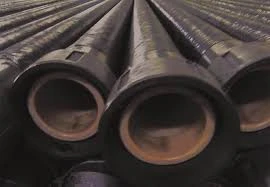
-
 Afrikaans
Afrikaans -
 Albanian
Albanian -
 Amharic
Amharic -
 Arabic
Arabic -
 Armenian
Armenian -
 Azerbaijani
Azerbaijani -
 Basque
Basque -
 Belarusian
Belarusian -
 Bengali
Bengali -
 Bosnian
Bosnian -
 Bulgarian
Bulgarian -
 Catalan
Catalan -
 Cebuano
Cebuano -
 China
China -
 China (Taiwan)
China (Taiwan) -
 Corsican
Corsican -
 Croatian
Croatian -
 Czech
Czech -
 Danish
Danish -
 Dutch
Dutch -
 English
English -
 Esperanto
Esperanto -
 Estonian
Estonian -
 Finnish
Finnish -
 French
French -
 Frisian
Frisian -
 Galician
Galician -
 Georgian
Georgian -
 German
German -
 Greek
Greek -
 Gujarati
Gujarati -
 Haitian Creole
Haitian Creole -
 hausa
hausa -
 hawaiian
hawaiian -
 Hebrew
Hebrew -
 Hindi
Hindi -
 Miao
Miao -
 Hungarian
Hungarian -
 Icelandic
Icelandic -
 igbo
igbo -
 Indonesian
Indonesian -
 irish
irish -
 Italian
Italian -
 Japanese
Japanese -
 Javanese
Javanese -
 Kannada
Kannada -
 kazakh
kazakh -
 Khmer
Khmer -
 Rwandese
Rwandese -
 Korean
Korean -
 Kurdish
Kurdish -
 Kyrgyz
Kyrgyz -
 Lao
Lao -
 Latin
Latin -
 Latvian
Latvian -
 Lithuanian
Lithuanian -
 Luxembourgish
Luxembourgish -
 Macedonian
Macedonian -
 Malgashi
Malgashi -
 Malay
Malay -
 Malayalam
Malayalam -
 Maltese
Maltese -
 Maori
Maori -
 Marathi
Marathi -
 Mongolian
Mongolian -
 Myanmar
Myanmar -
 Nepali
Nepali -
 Norwegian
Norwegian -
 Norwegian
Norwegian -
 Occitan
Occitan -
 Pashto
Pashto -
 Persian
Persian -
 Polish
Polish -
 Portuguese
Portuguese -
 Punjabi
Punjabi -
 Romanian
Romanian -
 Russian
Russian -
 Samoan
Samoan -
 Scottish Gaelic
Scottish Gaelic -
 Serbian
Serbian -
 Sesotho
Sesotho -
 Shona
Shona -
 Sindhi
Sindhi -
 Sinhala
Sinhala -
 Slovak
Slovak -
 Slovenian
Slovenian -
 Somali
Somali -
 Spanish
Spanish -
 Sundanese
Sundanese -
 Swahili
Swahili -
 Swedish
Swedish -
 Tagalog
Tagalog -
 Tajik
Tajik -
 Tamil
Tamil -
 Tatar
Tatar -
 Telugu
Telugu -
 Thai
Thai -
 Turkish
Turkish -
 Turkmen
Turkmen -
 Ukrainian
Ukrainian -
 Urdu
Urdu -
 Uighur
Uighur -
 Uzbek
Uzbek -
 Vietnamese
Vietnamese -
 Welsh
Welsh -
 Bantu
Bantu -
 Yiddish
Yiddish -
 Yoruba
Yoruba -
 Zulu
Zulu
Alternative Solutions for Fiberglass Sewer Pipe in Modern Plumbing Applications
Fiberglass Sewer Pipe A Viable Alternative for Modern Infrastructure
In the realm of sewer systems and wastewater management, the materials used significantly influence the longevity, efficiency, and overall performance of the infrastructure. Traditionally, materials such as clay, concrete, and PVC have dominated the market. However, advancements in technology have introduced intriguing alternatives, one of which is fiberglass sewer pipe. This article explores the benefits of fiberglass sewer pipes and why they present a compelling choice for modern infrastructure projects.
Understanding Fiberglass Sewer Pipes
Fiberglass sewer pipes are composed of a composite material that combines glass fibers with a resin. This unique construction results in a lightweight yet exceptionally strong material that boasts impressive resistance to corrosion, chemical exposure, and environmental conditions. As municipalities and construction firms seek more durable and sustainable options for sewer systems, fiberglass has emerged as a frontrunner.
Advantages of Fiberglass Sewer Pipes
1. Durability and Longevity One of the most significant advantages of fiberglass sewer pipes is their remarkable durability. Unlike traditional materials that can succumb to corrosion over time, fiberglass maintains its structural integrity even in harsh conditions. This longevity translates to reduced maintenance costs and fewer replacements over the lifespan of the infrastructure.
2. Resistance to Chemicals Sewage systems are often exposed to various chemicals present in wastewater. Fiberglass pipes exhibit excellent resistance to a broad range of acids, alkalis, and other aggressive substances, making them suitable for a diverse array of applications. This feature ensures that the pipes remain intact and functional, providing a reliable sewer solution.
3. Lightweight yet Strong Fiberglass pipes are significantly lighter than their concrete or clay counterparts, making transportation and installation easier and more cost-effective. The reduction in weight also minimizes the need for heavy lifting equipment, thereby lowering labor costs and expediting project timelines.
fiberglass sewer pipe alternative.

4. Flexibility in Design The manufacturing process for fiberglass allows for a range of pipe diameters and configurations. This adaptability enables engineers to design sewer systems tailored to specific site conditions and requirements, optimizing the layout and performance of the infrastructure.
5. Sustainability In an age where environmental concerns are paramount, fiberglass sewer pipes offer a sustainable alternative. These pipes are often made from recycled materials and can be recycled themselves at the end of their lifespan. Their durability also contributes to sustainability, as fewer replacements mean less waste and lower material consumption over time.
6. Smooth Interior Surface Fiberglass pipes have a smooth interior surface that reduces friction and prevents the buildup of deposits. This characteristic not only facilitates smoother flow and better hydraulics but also decreases the risk of clogs and blockages, ensuring efficient wastewater transportation.
Considerations for Use
While fiberglass sewer pipes offer numerous benefits, there are considerations that must be addressed. For instance, the initial cost of fiberglass can be higher than that of some traditional materials. However, when factoring in the long-term savings from reduced maintenance and replacement needs, the overall value often favors fiberglass.
Moreover, proper installation and adherence to local codes and regulations are crucial in ensuring the optimal performance of fiberglass pipes. As with any construction material, investing in quality installation is vital to realizing the full benefits of fiberglass.
Conclusion
As infrastructure demands continue to evolve, fiberglass sewer pipes stand out as a leading alternative to traditional materials. With their durability, chemical resistance, lightweight nature, and sustainability, they address many of the challenges faced by modern sewer systems. Policymakers, engineers, and construction professionals should consider the advantages of fiberglass as they plan for the future of wastewater management. Embracing innovative solutions like fiberglass not only enhances the reliability of sewer systems but also aligns with sustainable practices crucial in today’s environmentally conscious society.









